Using Storytelling as a Foundation for Curriculum Development
11 February 2025
Imagine a classroom where students are not just passive listeners but active participants in the learning journey. Instead of mindlessly memorizing facts and figures, they are immersed in tales that spark curiosity, imagination, and deeper understanding. Sounds ideal, right? Well, what if I told you that this dream classroom could be achieved by building curriculum development on one of the oldest and most natural forms of human communication: storytelling?
Incorporating storytelling into curriculum development is more than just a creative twist—it’s an effective strategy that can foster deeper learning, engagement, and retention. In this article, we will explore why and how storytelling can serve as the bedrock of curriculum development, ensuring that the educational experience is both enriching and memorable.

Why Storytelling is Essential in Education
Before diving into how storytelling can transform curriculum development, let’s first explore why storytelling is such a powerful tool in education.1. Storytelling is Innate to Human Experience
Think about it: from the earliest cave paintings to the latest Netflix series, humans have always been wired for stories. We use stories to make sense of the world around us, to pass down knowledge, and to connect with others. Stories engage both the logical and emotional parts of our brain, making them much more memorable than raw data or abstract concepts.In fact, studies have shown that our brains are more engaged when we hear a story than when we listen to a list of facts. This makes storytelling an invaluable tool in education, where the goal is not only to impart knowledge but to make it stick.
2. Stories Help Us Understand Complex Ideas
One of the challenges of modern education is breaking down complex ideas into digestible, understandable pieces. And you know what? Stories do this beautifully. Through characters, settings, and plotlines, stories can simplify abstract concepts, making them more relatable and easier to understand.For example, think of how Aesop’s Fables teach moral lessons through simple animal characters. Or how ancient myths explain natural phenomena like the changing seasons. When we weave stories into the curriculum, we give students a familiar framework through which they can grasp even the most challenging topics.
3. Stories Engage Emotion and Imagination
Ever heard the saying, "People might forget what you said, but they’ll never forget how you made them feel"? Well, that holds true in education too. By tapping into emotions, stories can make information more meaningful and easier to recall. Instead of just reading about historical events, imagine reliving them through the eyes of a character who experienced it firsthand. How much more engaging would that be?Stories also encourage imagination. When students visualize the characters, settings, and events in a story, they are actively engaging with the content. This not only increases their interest but helps them develop critical thinking and problem-solving skills as they explore different perspectives.

How to Integrate Storytelling into Curriculum Development
Okay, so we know why storytelling is important, but how do we actually go about integrating it into curriculum development? Let’s break it down.1. Align Stories with Learning Objectives
First things first, any story used within a curriculum should align with the learning objectives. This means that the story should serve as a vehicle to convey key concepts, not just as entertainment. The trick is to ensure that the story reinforces the lesson's core principles while keeping students engaged.For example, if you’re teaching a science lesson on ecosystems, you could create a story about a group of animals living in a forest. Each character represents a different species, and through their interactions, students learn about food chains, interdependence, and environmental balance.
2. Use Real-life Case Studies
Not all stories need to be fictional! Real-life case studies can be just as impactful, especially for older students. Case studies are essentially narrative-driven explorations of real-world problems, solutions, and outcomes. They can be particularly useful in subjects like history, business, or social studies.For instance, in a business class, instead of just lecturing on the principles of entrepreneurship, you could tell the story of a well-known entrepreneur—how they started, the challenges they faced, and the decisions that led to their success. This not only grounds theoretical concepts in reality but also inspires students by showing them what’s possible.
3. Create Story-based Projects
One of the best ways to immerse students in storytelling is to allow them to become the storytellers. A story-based project can transform any subject into an interactive and engaging experience.For example, in a literature class, instead of asking students to write a traditional essay on a book, why not ask them to create a short story or a play that reflects the themes and characters of the book? Or in a science class, students can create a story about a scientific discovery, told from the perspective of the scientist who made it.
These projects not only encourage creativity but also help students internalize the lessons in a way that feels personal and meaningful.
4. Incorporate Digital Storytelling
We live in a digital world, and students today are more tech-savvy than ever. By incorporating digital storytelling tools, you can make your curriculum even more engaging. Tools like video editing software, podcasts, or even social media platforms can be used to create dynamic, multimedia stories.For example, students can create a short video or podcast series where they "interview" historical figures, or produce a documentary-style project on a scientific topic. These digital storytelling projects not only help students learn the material but also teach them valuable technical skills.
5. Integrate Diverse Perspectives
One of the most beautiful aspects of storytelling is its ability to give voice to different perspectives. In curriculum development, this can be a powerful way to introduce students to a wide range of experiences and viewpoints.For example, in social studies, you could use stories from various cultural or historical perspectives to teach students about different worldviews. This not only broadens their understanding of the subject but fosters empathy and global-mindedness.
6. Use Storytelling to Build Critical Thinking
Stories don’t always have to provide all the answers. In fact, some of the best stories leave us with more questions than answers. This can be a great way to cultivate critical thinking in students.For example, you could present a story that ends with an open-ended problem, then ask students to come up with their own solutions. This encourages them to think critically, analyze different perspectives, and engage in meaningful discussions.
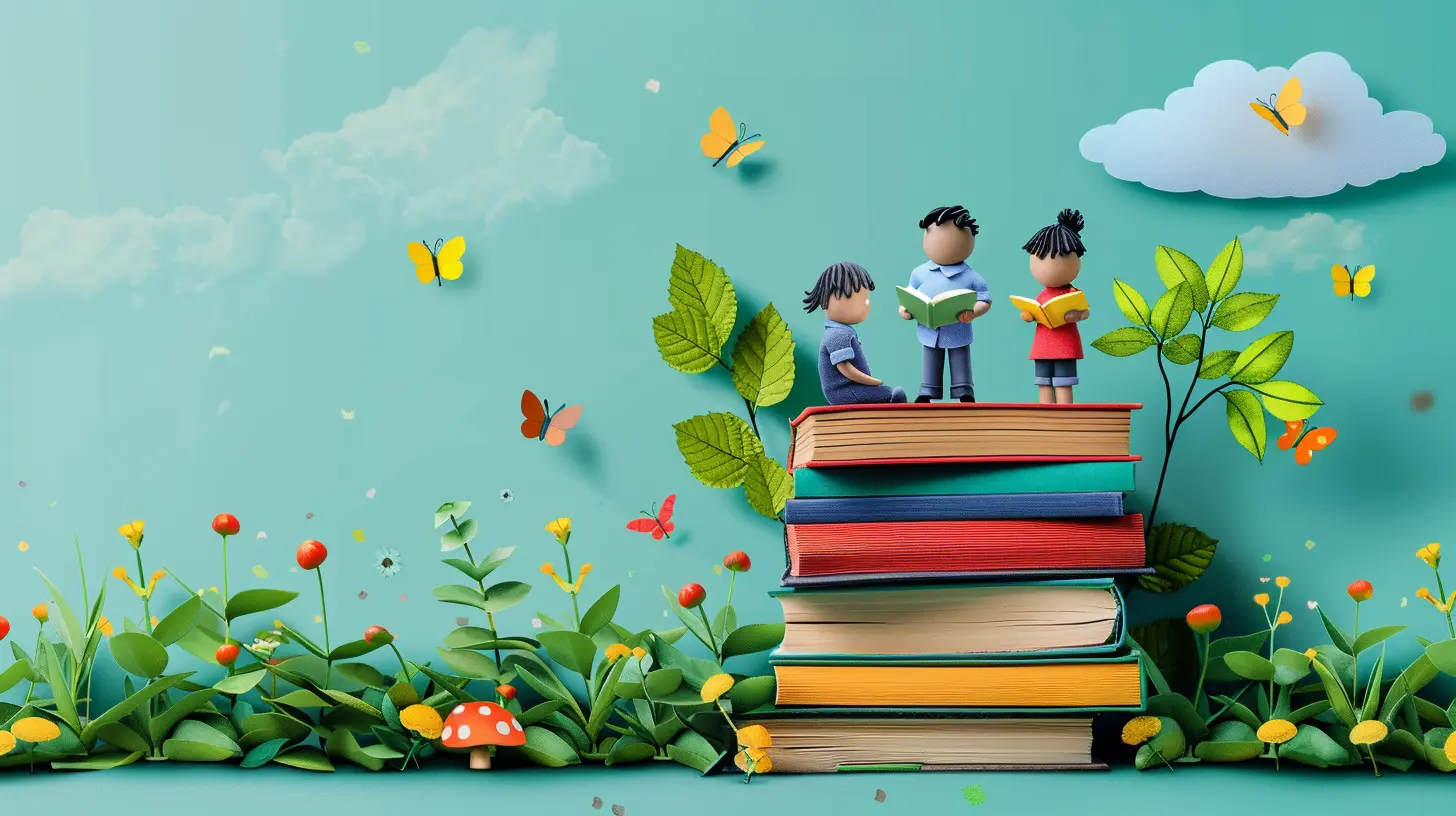
The Benefits of Storytelling in Curriculum Development
So, what are the actual benefits of using storytelling as a foundation for curriculum development? Let’s take a look.1. Increased Engagement
Let’s face it: traditional textbooks and lectures can be boring. But when you introduce storytelling, suddenly the material comes alive. Students are naturally more engaged when they’re listening to or creating a story, making them more active participants in the learning process.2. Enhanced Memory Retention
Remember earlier when we talked about how stories engage both the logical and emotional parts of the brain? Well, this has a direct impact on memory retention. When students are emotionally invested in a story, they’re much more likely to remember the key lessons associated with it.3. Improved Critical Thinking and Problem-Solving
Stories often present challenges or conflicts that need to be resolved. By engaging with these narrative elements, students develop their critical thinking skills. Whether it’s analyzing a character’s motivation or solving a problem within a story, students are constantly exercising their brains in ways that traditional teaching methods might not encourage.4. Encourages Creativity and Imagination
Storytelling fosters creativity in both the teacher and the students. Whether you’re creating your own stories or analyzing existing ones, the process encourages imaginative thinking. This is particularly important in today’s world, where creativity and innovation are highly valued skills.5. Promotes Emotional and Social Learning
Stories often deal with human experiences, emotions, and relationships. By engaging with these elements, students develop empathy and social awareness. This is especially important in subjects like literature, social studies, and even science, where understanding human impact is crucial.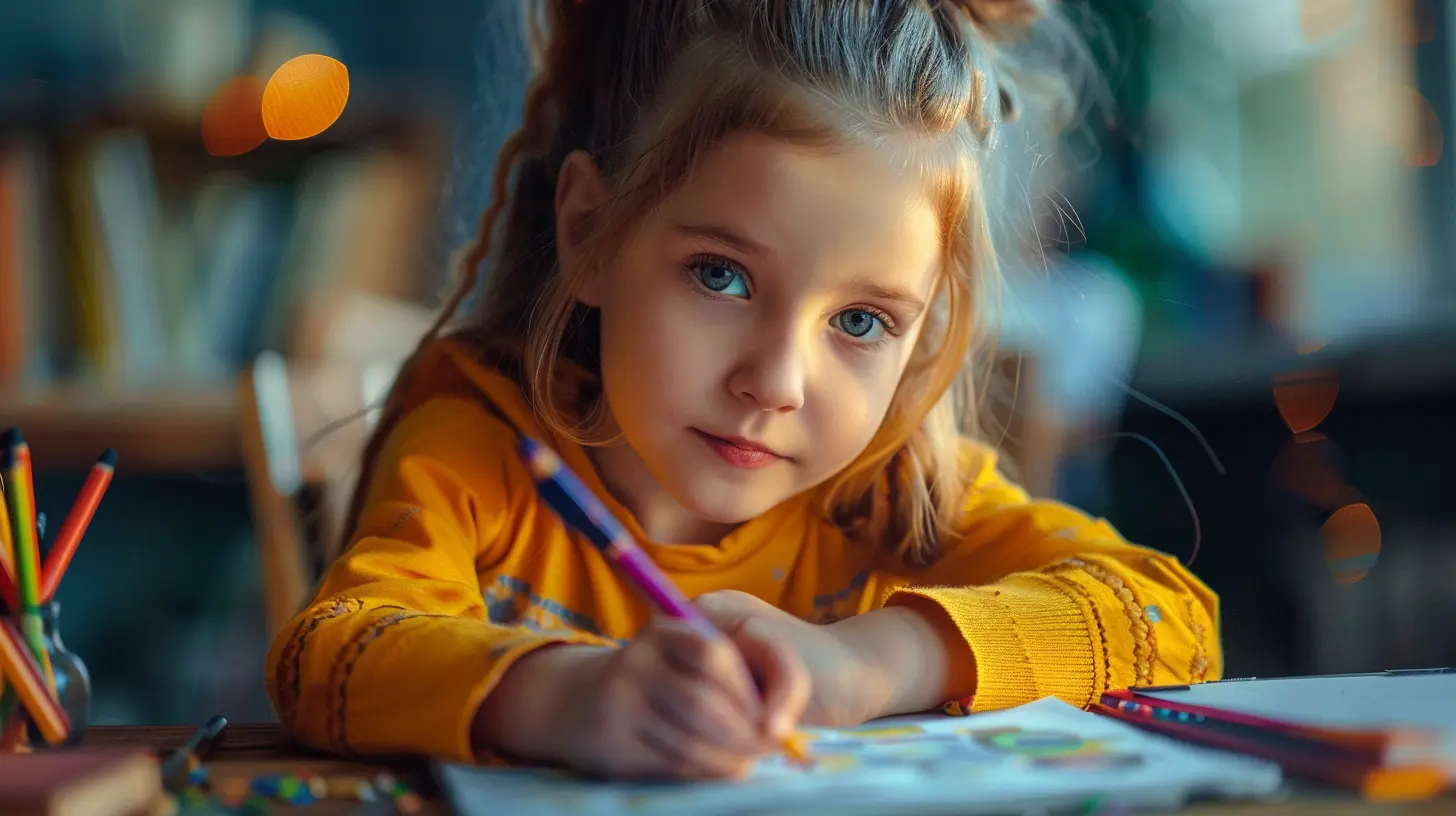
Conclusion
Incorporating storytelling into curriculum development isn’t just a trendy new teaching strategy—it’s a time-tested method that taps into how humans naturally learn and understand the world. By aligning stories with educational objectives, creating immersive projects, and integrating diverse perspectives, educators can foster deeper engagement, critical thinking, and creativity among their students.So, the next time you’re planning a lesson or developing a curriculum, remember the power of storytelling. Not only will your students thank you for it, but you might just find that you enjoy the process more too.
all images in this post were generated using AI tools
Category:
Curriculum DesignAuthor:

Olivia Chapman
Discussion
rate this article
16 comments
Zane Wolf
Storytelling sparks creativity! Let’s weave imagination into education and inspire students to become lifelong learners. Happy teaching!
March 31, 2025 at 12:17 PM

Olivia Chapman
Absolutely! Storytelling not only enhances creativity but also fosters a deeper connection to learning, making education an inspiring journey for students. Thank you for your support!
Desiree McKinley
Who knew crafting a curriculum could feel like spinning a wild tale? Just remember: if your lesson plan starts with ‘Once upon a time,’ you might be on to something! Let’s just hope the plot twist isn’t a surprise pop quiz!
March 26, 2025 at 4:48 AM

Olivia Chapman
Absolutely! Storytelling adds creativity and engagement to curriculum development, making learning an adventure. Just beware of those unexpected plot twists!
Derek Dorsey
Thank you for sharing this insightful article! Emphasizing storytelling in curriculum development opens up a world of creativity and engagement for both educators and students. It's a wonderful reminder of how narratives can enhance learning experiences and make lessons truly memorable. Can't wait to explore these ideas further!
March 12, 2025 at 10:01 PM

Olivia Chapman
Thank you for your thoughtful response! I'm glad you found the ideas on storytelling in curriculum development inspiring. Excited for you to explore them further!
Elidi Kane
What a fantastic read! Storytelling not only captivates minds but also weaves together learning in a way that sticks. It’s like giving students a map to navigate their educational journey! Let’s embrace this creative approach and watch imagination flourish in our classrooms. Excited to see how this unfolds!
March 11, 2025 at 4:48 AM

Olivia Chapman
Thank you for your thoughtful comment! I'm thrilled to hear you resonate with the idea of using storytelling as a tool for learning. Let's indeed embrace this approach to inspire creativity in our classrooms!
Vance Roth
What a delightful read! Storytelling truly transforms learning, making education vibrant and engaging for all students! 🎉
March 9, 2025 at 12:22 PM

Olivia Chapman
Thank you! I'm glad you enjoyed it and see the power of storytelling in education! 🎉
Velvet Marks
Storytelling in curriculum? Finally, a reason to justify my daydreaming in class! Let's begin!
March 7, 2025 at 8:18 PM

Olivia Chapman
Absolutely! Storytelling not only fuels creativity but also enhances learning. Embrace those daydreams; they can lead to amazing insights!
Gabrielle Mendez
Absolutely loved this! Storytelling not only engages students but also makes learning unforgettable. It’s amazing how narratives can deepen understanding and spark curiosity!
March 4, 2025 at 9:19 PM

Olivia Chapman
Thank you! I'm thrilled you enjoyed it. Storytelling truly transforms learning into an engaging and memorable experience!
Runehart Sawyer
Great insights! Integrating storytelling into curriculum development can truly enhance engagement and understanding among students. Thank you for sharing!
March 3, 2025 at 7:36 PM

Olivia Chapman
Thank you for your kind words! I'm glad you found the insights valuable. Storytelling truly can transform the learning experience.
Rory McGeehan
Finally, a plot twist in school!
March 3, 2025 at 4:46 AM

Olivia Chapman
I'm glad you see the potential! Storytelling can truly transform the learning experience.
Jack Bell
What an intriguing approach! I'm curious about how storytelling can enhance student engagement and retention in various subjects. Are there specific techniques or examples of successful integration into curricula? It would be fascinating to see how narratives can shape learning experiences and foster deeper connections to the material.
March 1, 2025 at 7:35 PM

Olivia Chapman
Thank you for your interest! Storytelling enhances engagement by creating relatable contexts, making lessons memorable. Techniques like narrative-based projects, character perspectives, and historical storytelling have proven effective in subjects like history and literature. These methods foster emotional connections, enhancing retention and understanding.
Thorne McCaffrey
Empower minds through the art of storytelling!
February 25, 2025 at 12:47 PM

Olivia Chapman
Absolutely! Storytelling captivates and inspires, making learning more engaging and memorable.
Catherine Wade
Storytelling sparks creativity—let’s inspire young minds!
February 21, 2025 at 8:41 PM

Olivia Chapman
Absolutely! Storytelling is a powerful tool that nurtures imagination and fosters a love for learning in young minds. Let's harness its potential!
Hadley Rhodes
Intriguing approach! Excited to see how storytelling can enhance curriculum creativity and engagement!
February 19, 2025 at 12:48 PM

Olivia Chapman
Thank you! I'm glad you’re excited about the potential of storytelling in education. It truly can transform learning experiences!
Honor Rogers
Storytelling enriches curriculum, making learning engaging and memorable for students of all ages.
February 19, 2025 at 4:40 AM

Olivia Chapman
Thank you for your insight! I completely agree—storytelling not only captivates students but also deepens their understanding and retention of knowledge.
Sophia Adkins
Storytelling: Turning textbooks into adventure novels for curious minds!
February 17, 2025 at 5:06 AM

Olivia Chapman
Absolutely! Storytelling transforms traditional learning into engaging experiences, making education more relatable and inspiring for curious minds.
Ian McDonough
Storytelling enriches curriculum development by fostering deeper connections between content and students. It engages diverse learning styles, promotes critical thinking, and encourages empathy, ultimately transforming traditional education into a more dynamic and relatable experience for all learners.
February 13, 2025 at 1:27 PM

Olivia Chapman
Thank you for your insightful comment! I completely agree that storytelling enhances curriculum by creating meaningful connections and engaging students on multiple levels. It’s a powerful tool for fostering empathy and critical thinking.
MORE POSTS
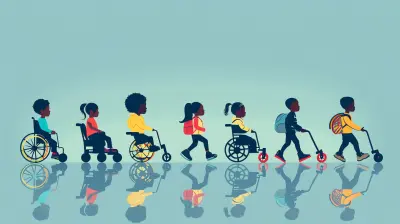
How E-Learning is Making Education More Inclusive

The Best Ways to Tackle Difficult Subjects Without Feeling Overwhelmed

Project-Based Learning: Transforming Curriculum for Active Learning
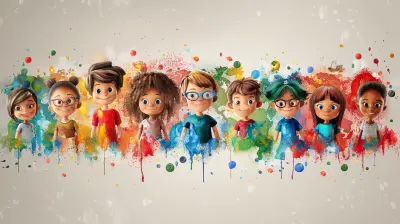
Using Media to Foster Cultural Awareness in Students

Moral Dilemmas: Teaching Critical Thinking in Ethical Decisions

How to Manage Non-Verbal Cues in Video Meetings
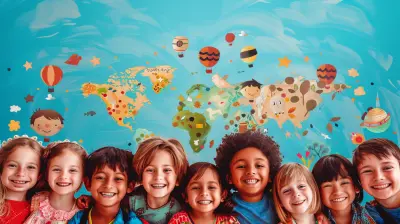
Building Inclusive Classrooms through Cultural Awareness
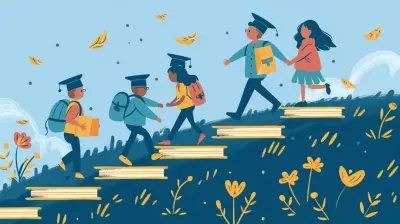
The Role of Parental Support in Student Motivation
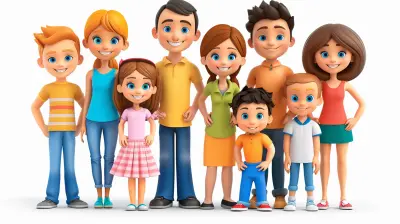
The Role of Family in Supporting Character Education

Creating E-Learning Courses for Non-Native Language Speakers